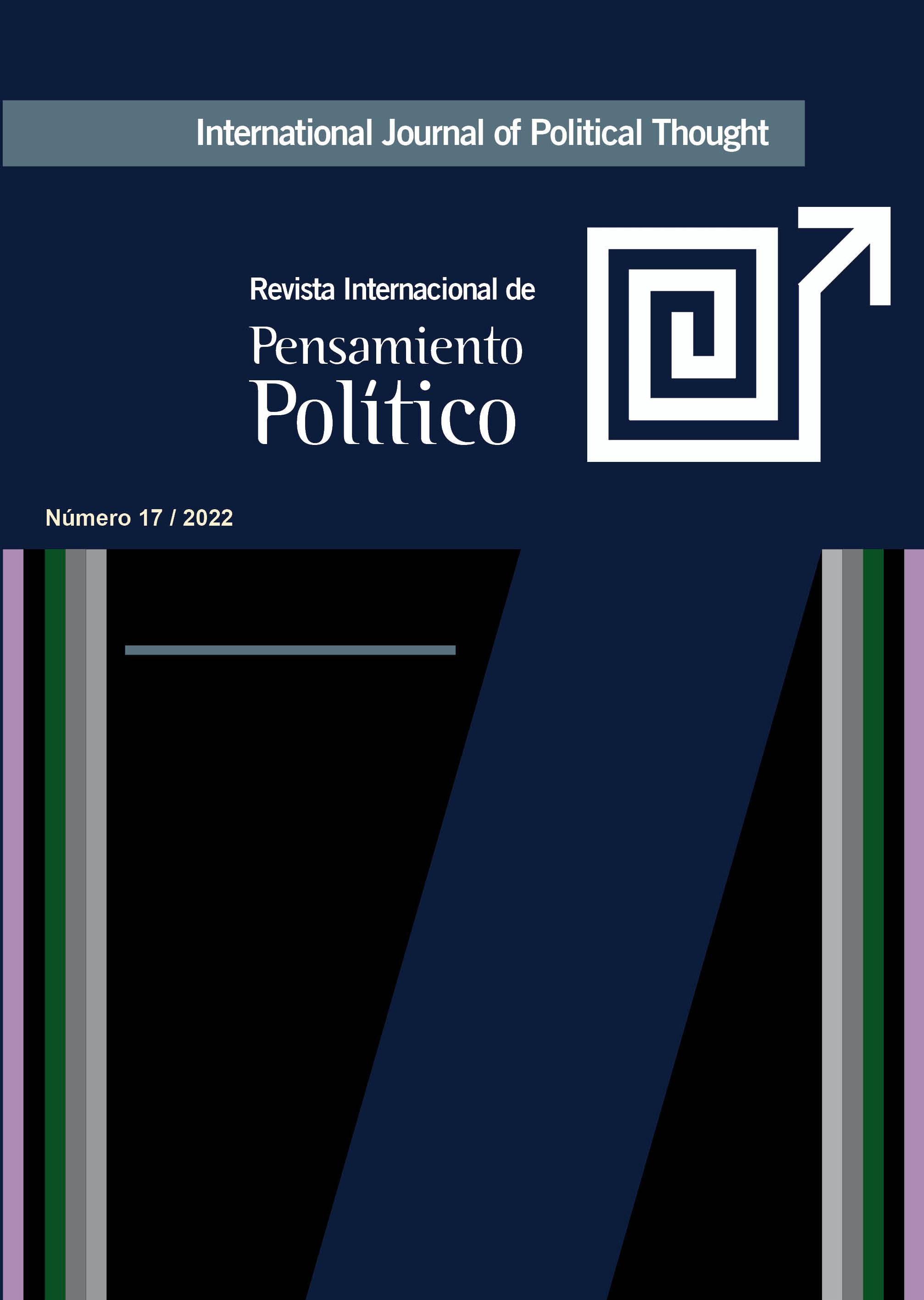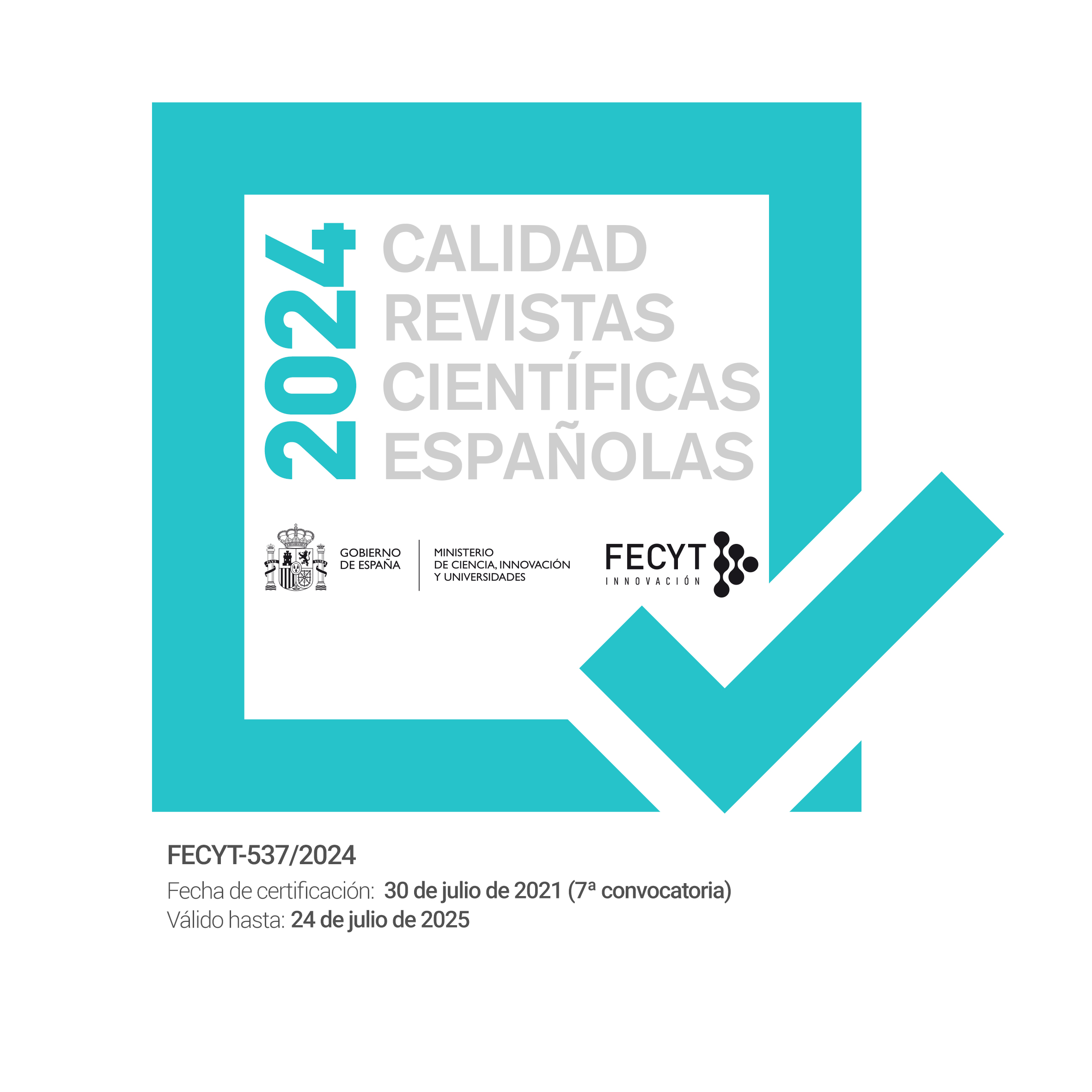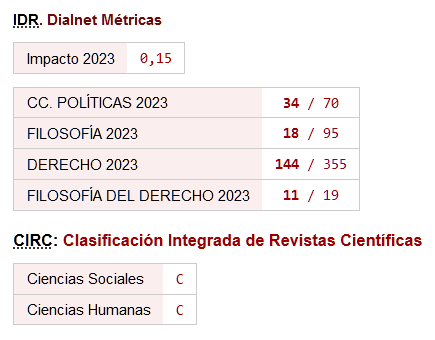Diferencias de género en participación política de la juventud de la Unión Europea
DOI:
https://doi.org/10.46661/revintpensampolit.7503Palabras clave:
Unión Europea, Participación Política, Género, JuventudResumen
El año 2022 ha sido declarado por el Consejo de Europa como “Año Europeo de la Juventud”. A tal efecto, este artículo busca conocer cuál es el papel que puede jugar la Unión Europea en el futuro de la juventud del continente y también si existen diferencias de género al respecto. Igualmente, se analizan estas diferencias en base a la participación en diferentes actividades de índole social y política tanto en el conjunto de países de la unión, como por zonas geográficas. El artículo descubre cómo los hombres tienden a participar más en actividades convencionales, mientras que las mujeres ven la política como algo más distante. De la misma manera, se muestra cómo existen trabas diferentes en la participación de actividades en base al género.
Descargas
Citas
Bauman, Z. (2003). Liquid Modernity, Polity Books
Brussino, S., Rabbia, H.H. y Sorribas, P. (2009). "Perfiles Sociocognitivos de la Participación Política de los Jóvenes", Revista Interamericana de Psicología/Interamerican Journal of Psychology, 43(2): 279-287.
Cazorla, Trujillo y García, T. (2019). "La participación política más allá de los partidos". En Montabes, J. y Martínez, A. (eds.). Gobierno y Política en España. Valencia: Tirant lo Blanch, pp. 507-551.
Comisión Europea. (2022). Eurobarómetro Flash 502. Juventud y democracia en el año Europeo de la Juventud. Bruselas: Comisión Europea
Dahl, R. A. (1973). Polyarchy: Participation and Opposition. New Haven: Yale University Press.
Daskalopoulou, I. (2018). "Civic Participation and Soft Social Capital: Evidence from Greece". European Political Science 17: 404-21. https://doi.org/10.1057/s41304-017-0114-y
Dezelan, T. y Moxon, D. (2021). Influencing and understanding political participation patterns of young people. Bruselas: Comisión Europea.
Dimitrova, R. y Wiium, N. (2021). Handbook of Positive Youth Development: Advancing the Next Generation of Research, Policy and Practice in Global Contexts. Cham.: Springer. https://doi.org/10.1007/978-3-030-70262-5
Flanagan, C. A. (2013). Teenage Citizens: The Political Theories of the Young: Harvard, University Press. https://doi.org/10.4159/harvard.9780674067233
Franklin, M. N. (2004). Voter turnout and the dynamics of electoral competition in established democracies since 1945. Cambridge: Cambridge University Press. https://doi.org/10.1017/CBO9780511616884
Gallego, A. (2007). Inequality in political participation: Contemporary patterns in European countries. Irvine: Center for the Study of Democracy: University of California.
García-Albacete, G. (2020). Jóvenes y política: actitudes y preferencias en IJE (2020). Informe Juventud en España 2020. Madrid: INJUVE.
García-Hípola, G., Antón-Merino, J. y S. Pérez-Castaños (2021). "The use of emotions in 2019 European Elections campaign materials", en Rocznik Integracji Europejskiej, 15: 59-63 https://doi.org/10.14746/rie.2021.15.4
Grasso, M., & Smith, K. (2022). "Gender inequalities in political participation and political engagement among young people in Europe: Are young women les politically engaged than young men?", Politics, 42(1), 39-57. https://doi.org/10.1177/02633957211028813
Gil-Lacruz, A.I, Marcuello-Servós, C y Saz-Gil, M.I. (2016). "Youth volunteering in Countries in the European Union: Approximation to Differences", Nonprofit and Voluntarly Sector Quarterly, 45(5): 971-991. https://doi.org/10.1177/0899764015609731
Halupka, M. (2014). "Clicktivism: A Systematic Heuristic". Policy & Internet, 6: 115-32. https://doi.org/10.1002/1944-2866.POI355
Hawley, G. (2019). The Alt-Right. What Everyone Needs to Know. Nueva York: Oxford University Press. https://doi.org/10.1093/wentk/9780190905194.001.0001
Holecz, V., Fernández, E. y Giugni, M. (2022). "Broadening political participation: The impact of socialising practices on young people's action repertoires", Politics, 42(1): 58-74. https://doi.org/10.1177/02633957211041448
Jennings, M. K. (1979). "Another look at the life cycle and political participation", American Journal of Political Science, 4:755-771. https://doi.org/10.2307/2110805
Kitanova, M. (2020). "Youth political participation in the EU: evidence from a cross-national analysis", Journal of Youth Studies, 23(7): 819-836. https://doi.org/10.1080/13676261.2019.1636951
Kristofferson, K., K. White, y J. Peloza. (2014). "The Nature of Slacktivism: How the Social Observability of an Initial Act of Token Support Affects Subsequent Prosocial Action". Journal of Consumer Research, 40: 1149-66. https://doi.org/10.1086/674137
Kudrnáč, A. y Allaste, A. A. (2022). "Students' School and Political Participation in a Former Socialist Country". Problems of Post-Communism. https://doi.org/10.1080/10758216.2022.2062001
Lane, R. E. (1959). Political life: Why people get involved in politics. Glencoe: The Free Press. https://doi.org/10.2307/1891593
Lister, R. (2007). "Inclusive citizenship: realizing the potential". Citizenship Studies, 11: 49-61. https://doi.org/10.1080/13621020601099856
Ma, L. y Zhang, Y. (2022). "Three Social-Mediated Publics in Digital Activism: A Network Perspective of Social Media Public Segmentation", Social Media + Society, 8(2). https://doi.org/10.1177/20563051221094775
Manheim, J. B. y Rich, R. C. (2002). Análisis político empírico. Métodos de investigación en ciencia política. Madrid: Alianza.
Marsh, D.; O'Toole, T. y Jones, S. (2006). Young People and Politics in the UK. Basingstoke, Palgrave Macmillan. https://doi.org/10.1057/9780230625631
Moeller, J., Kühne, R. y De Vreese, C. (2018). "Mobilizing Youth in the 21st Century: How Digital Media Use Fosters Civic Duty, Information Efficacy, and Political Participation", Journal of Broadcasting& Electronic Media, 62(3): 445-460. https://doi.org/10.1080/08838151.2018.1451866
Motti-Stefanidi, F y Masten, A.S. (2017). "A resilience perspective on inmigrant youth adaptation and development". En N.J. Cabrera y B. Leyendecker (Eds.), Positive development of minority children. Netherlands: Springer, pp 19-34. https://doi.org/10.1007/978-3-319-43645-6_2
Motti-Stefanidi, F y Cicognani, E. (2018). "Bringing the European Union closer to its young citizens: Youth active citizenship in Europe and trust in EU institutions", European Journal of Developmental Psychology, 15(3): 243-249. https://doi.org/10.1080/17405629.2017.1423052
Öz, Y y Van Praag, L. (2022). "Can participation in learning abroad mobility support por-European Union attitudes among youth?", European Educational Research Journal, 1-17, SAGE. https://doi.org/10.1177/14749041221084849
Pacheco, J. S. y E. Plutzer. (2016). "Stay in School, Don't Become a Parent: Teen Life Transitions and Cumulative Disadvantages for Voter Turnout", American Politics Research, 35:32-56. https://doi.org/10.1177/1532673X06292817
Pfanzelt, H. y Spies, D.C. (2019). "The Gender Gap in Youth Political Participation: Evidence from Germany", Social Media + Society, 72(1). https://doi.org/10.1177/1065912918775249
Sloam, J. (2012). "Rejuvenating Democracy? Young People and the 'Big Society' Project". Parliamentary Affairs 65 (1): 90-114. https://doi.org/10.1093/pa/gsr051
Vaccari, C y Valeriani, A. (2016). "Party Campaigners or Citizen Campaigners? How social media Deepen and Broaden Party-Related Engagement", The International Journal of Press/Politics, 21 (3): 294-312. https://doi.org/10.1177/1940161216642152
Van Deth, J.W, y Elff, M. (2004). "Politicisation, economic development and political interest in Europe", European Journal of Political Research, 43(3): 477-508. https://doi.org/10.1111/j.1475-6765.2004.00162.x
Weiss, J.S. (2020). "What is Youth Political Participation? Literature review on Youth Political Participation and Political Attitudes". Front. Polit. Sci., 2:1. https://doi.org/10.3389/fpos.2020.00001
Young, I. M. (2004). "Situated knowledge and democratic discussions". En J. Anderson & B. Siim (Eds.), The politics of inclusion and empowerment. New York: Palgrave Macmillan, pp. 19-35. https://doi.org/10.1057/9781403990013_2
Zumárraga-Espinosa, M. (2020). "Aportes metodológicos para le medición del sentido de eficacia política", Empiria: Revista de metodología de ciencias sociales, 45: 113-142. https://doi.org/10.5944/empiria.45.2020.26306
Descargas
Publicado
Cómo citar
Número
Sección
Licencia
Derechos de autor 2022 Sandra García-Santamaría, Sergio Pérez Castaños

Esta obra está bajo una licencia internacional Creative Commons Atribución-NoComercial-CompartirIgual 4.0.
Política de acceso abierto
Se permite el acceso libre y abierto de cualquier interesado a todos los contenidos de los números de la revista, sin costo alguno, pudiendo imprimir y trasladar todos los artículos, con la única condición de precisar la fuente y la autoría.
La revista: a) no cobra a las autorías costes por el procesamiento de los artículos ni por el envío de los mismos, b) mantiene el copyright para los autores sin restricciones, c) facilita a los autores conservar sus derechos de publicación sin limitaciones.
La Revista Internacional de Pensamiento Político es una obra original del Laboratorio de Ideas y Prácticas Políticas de la Universidad Pablo de Olavide. Todos los artículos incluidos en la Revista son obra original de sus respectivas autorías. Esta Revista se ofrece libremente a la comunidad científica y académica sin coste alguno y libera los contenidos de acuerdo a la licencia "Reconocimiento-NoComercial-CompartirIgual 4.0 CC BY-NC-SA" del proyecto Creative Commons dispuesta en la siguiente url: https://creativecommons.org/licenses/by-nc-sa/4.0/legalcode
Si deseas traducir o compilar alguno de los artículos aquí disponibles, por favor, ponte en contacto














